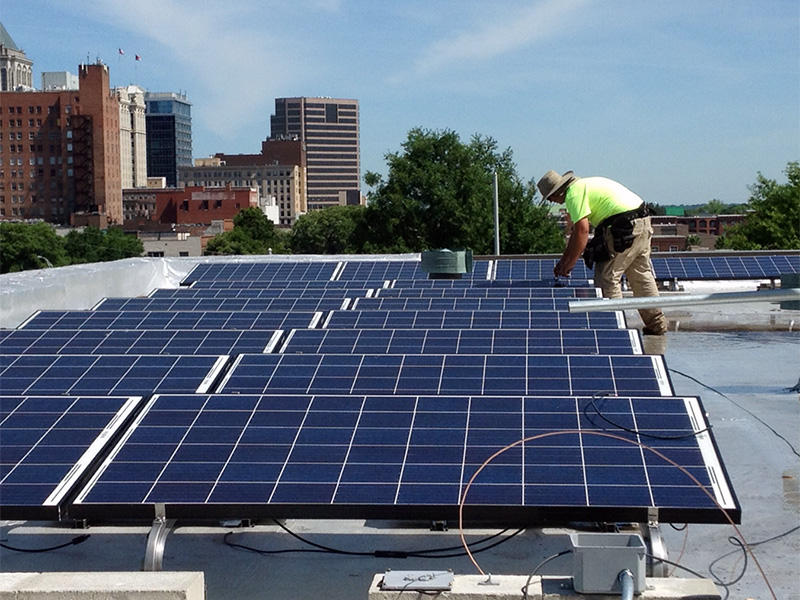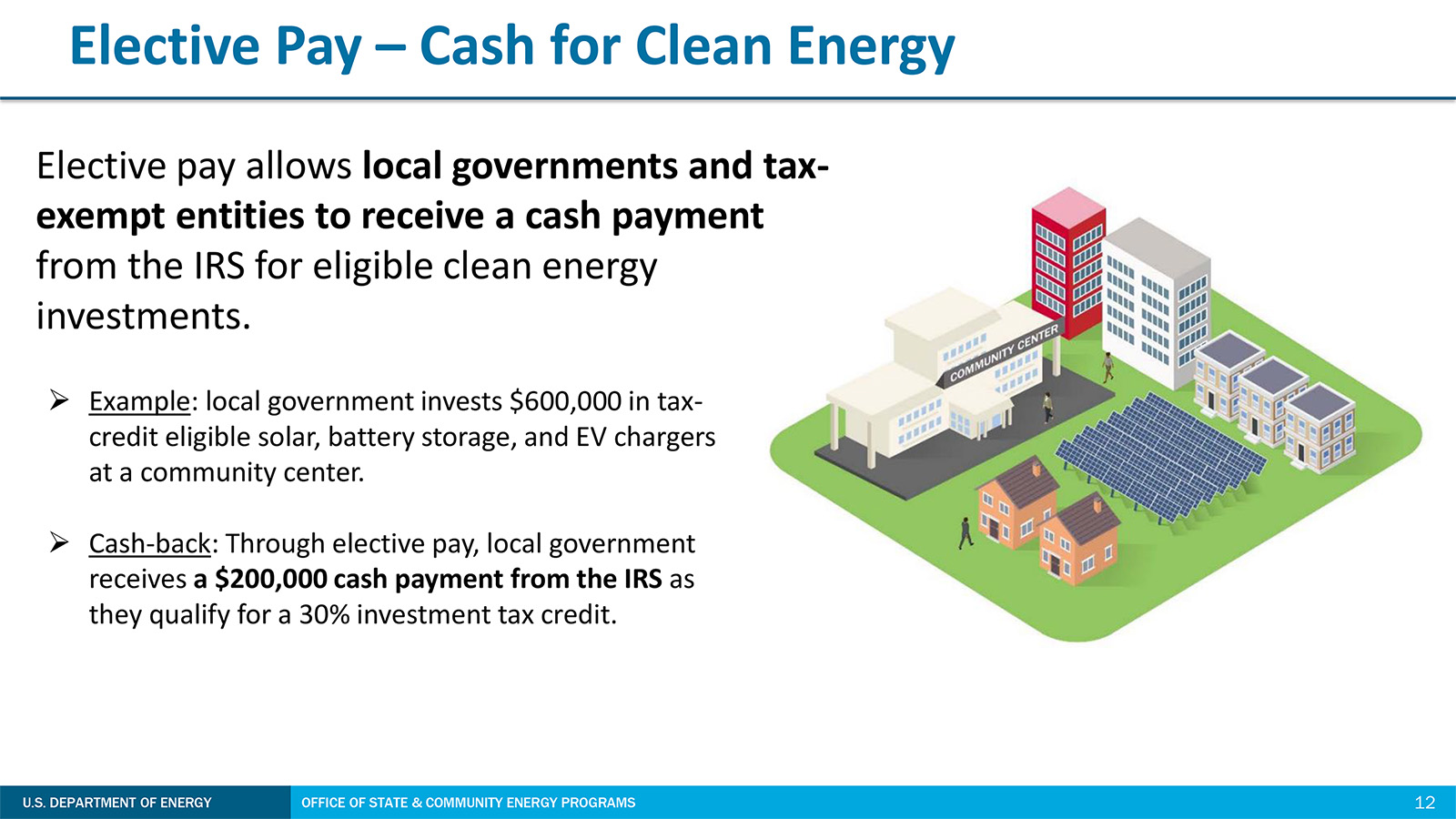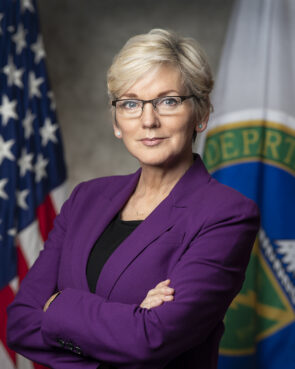
(RNS) — Billions of dollars in tax credits and grants are available from the U.S. government for churches and other nonprofits to help them become more energy efficient. The money comes primarily from the 2022 Inflation Reduction Act, but there are also funds from the 2021 Bipartisan Infrastructure Law and the 2022 CHIPS and Science Act.
Before passage of the IRA, only commercial and tax-paying corporations could benefit from tax credits. Tax exempt entities can now receive a payment equal to the full value of clean energy tax credits even though they do not owe taxes.
Federal officials are trying to get the word out, often in faith language. In a webinar for religious leaders on July 18, Secretary of Energy Jennifer Granholm said, “Scripture teaches us to take care of the garden of the world and to love thy neighbor as thyself.”
Guided by faith and “buoyed by reverence for God’s creation and driven to improve the lot of others, congregations of every kind in every corner of America are living out those words,” she reported. “They are helping usher in our clean energy future.”
The Biden administration presents, in her words, an “unprecedented suite of tools to help congregations reduce their carbon footprints, their carbon pollution, while also being climate leaders in their communities.”
The funding for these initiatives is facilitated by the Office of State and Community Energy Programs in the Department of Energy, which partners with state, local and tribal governments and community organizations. The office is responsible for the management of $16 billion in formula grants, competitive grant awards, consumer rebate grants and technical assistance.
According to the SCEP, if any nonprofit, including houses of worship, invests $600,000 in tax-credit-eligible solar, battery storage and EV chargers, it may qualify for a $200,000 cash payment from the IRS.

“Elective Pay – Cash for Clean Energy” Courtesy of U.S. Department of Energy
Besides investment tax credits, nonprofits are also eligible for production tax credits, bonus credits and credits for clean commercial vehicles and EV chargers. See the full list of credits and details at IRS.gov/ElectivePay.
(Readers, of course, should not rely on this column for tax advice. Consult the IRS for detailed information on the rules associated with Inflation Reduction Act tax provisions.)
Several DOE programs offer competitive grants designed to get various entities to work together in finding energy solutions and achieving energy justice.
For nonprofits, there is a special “Renew America” program, through which DOE will award five to 15 grants to nonprofits interested in serving as “prime recipients.” A prime recipient is responsible for pulling together a number of energy efficiency projects from other nonprofits and providing technical and project management assistance.
DOE wants not only to foster energy efficiency but also energy and climate justice. In most cases, therefore, these new investments must show community benefits. A special program, the Inclusive Energy Innovation Prize, is a competition designed to support entrepreneurship and innovation in communities historically underserved by federal climate and energy technology funding.
An early prize winner is the Imani Green Works in Chicago, which SCEP describes as a collaboration by the faith community, local government and business interests “to create a minority owned, minority managed company to provide clean energy workforce development programs for historically disenfranchised residents of Chicago’s Pullman Community and Washington Heights neighborhoods, and conduct community workshops to foster grassroots innovation in climate smart projects.”
Another DOE program, the Clean Energy Coalition Prize, aims at developing partnerships between organizations within communities to address energy and sustainability challenges. The prize’s goal, according to SCEP, “is to incentivize the creation of community coalitions — made up of nonprofits, city governments, school systems, and other community organizations — to develop a strategy to address a local clean energy opportunity or inequity.”
Finally, the Buildings Upgrade Prize, with $22 million to spend, is aimed at making buildings more energy efficient.
The secretary wants to empower faith organizations to become more energy efficient but also “to go out into their communities and help congregants save thousands of dollars in energy costs as they upgrade appliances in their homes.”

Secretary of Energy Jennifer Granholm. Photo courtesy of U.S. Department of Energy
It is gratifying to see the federal government take faith organizations seriously. I find it particularly encouraging to see the money foster collaboration among local governments, churches and other nonprofits.
It’s not a new idea — Interfaith Power and Light, based in Oakland, California, has already been working toward such collaboration and is a resource about federal grants and tax credits opportunities — but the federal government moves mountains the way nonprofits can’t do themselves. IPL sponsored the webinar hosting Granholm.
“My hope, my prayer,” said Granholm, is “that you keep the faith that our future might still be bright and that you turn that faith into action.” She hopes “you treat that action as a moral mandate not just for your own posterity but for your neighbors, for perfect strangers and for all of humanity.”
It remains for churches and other houses of worship to get organized to take full advantage of these federal programs. Our faith communities have a moral obligation to reduce their carbon footprint and to encourage climate justice toward marginalized communities. If there is federal money to help in this effort, they should take advantage of it.
All of us must work together if we are going to deal with the climate crisis and do it in a way that benefits not only those with resources but also those on the margins.
